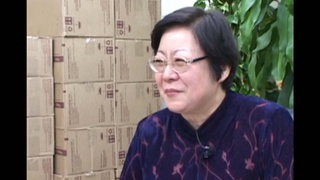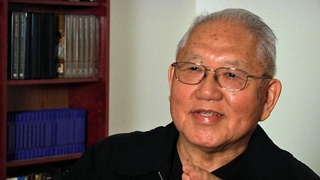Interviews
Relief fund to support Japanese communities (Japanese)
(Japanese) Within a month [of establishing the Social Assistance Organization], the Papa (Pope), Papa XII sent us 100 contos per month, and a large sum of 500 mils was collected. At the same time, we received the same monthly amount through the Red Cross of Rio. We didn’t know where that money was coming from, but after the war, we found out that the Japanese government had been sending it. The churches in Japan decided that they needed to take care of the Nikkei people, so they had arranged to send it to us.
Date:
Location: Brazil
Contributed by: Caminho da memória - 遥かなるみちのり. São Paulo, Brazil: Comissão de Elaboração da História dos 80 Anos de Imigração Japonesa no Brasil, 1998. VHS.
Explore More Videos

Several ways to participate and integrate into Japanese society (Spanish)
Japanese Peruvian in Japan

Going to camp with the Terminal Island people
(1927-2010) Political Activist


Interned at age fifteen, I saw camp as an adventure
(1927-2010) Political Activist

On Justice Todd’s Involvement with the Japanese American Cultural and Community Center
(b. 1942) The first Asian American woman judge










